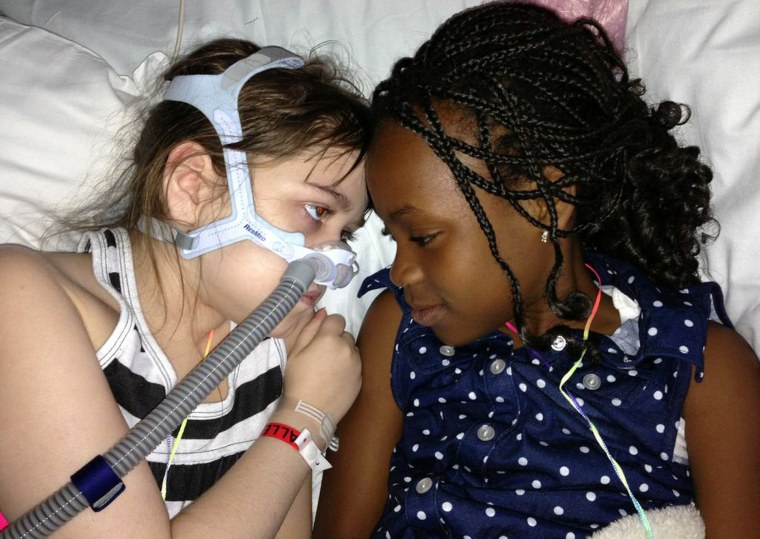Two children now lie in the same Philadelphia hospital awaiting life-saving lung transplants, after a judge granted emergency orders allowing them to be placed on the list for adult donors.
The latest case is that of Javier Acosta, 11, whose mother filed suit and was granted an emergency order on Thursday by a judge in the U.S. District Court of Pennsylvania. Acosta, who is receiving treatment at Philadelphia Children’s Hospital, suffers from cystic fibrosis--the same disease that claimed the life of his older brother. The 11-year-old needs a lung transplant to have any chance at survival, but has been waiting for a donation of children's lungs.
The ruling in favor of the Acosta family came the day after the parents of Sarah Murnaghan, 10, sought and were granted a similar order as part of their lawsuit against Health and Human Services Secretary Kathleen Sebelius. Murnaghan also suffers from cystic fibrosis and is being treated at Philadelphia Children’s Hospital, where she requires supplemental oxygen around the clock. Sebelius declined to intervene on Murnaghan’s behalf, even while calling her case “agonizing.” Murnaghan’s father, Fran, blasted Sebelius' refusal to get involved.
“She talks of her inability to do something, which is something we disagree with,” said Fran Murnaghan earlier this week in an interview with msnbc’s Thomas Roberts.
At issue in both of these children’s cases is a complicated, two-tier system created and monitored by the Organ Procurement and Transplantation Network. The OPTN uses what it calls allocation scores to distribute organs in what it says is the most fair and most effective way, based on both need and region. That policy bars children under the age of 12 from receiving surgically modified adult organs, in a system where donations of children’s organs are infrequent.
There are 1,707 people nationwide currently waiting on lung transplants, 16 of whom are children under the age of 12.
Howard Nathan, president and CEO of The Gift of Lift Donor Program says implanting modified adult organs in children is far from a routine procedure.
“I think the concept of the allocation system was that kids need kid organs,” said Nathan on msnbc Friday. “There have been some cases where organs have been cut down, but they are very, very rare operations.”
Not everyone agrees with the Murnaghan and Acosta families’ decision to pursue a change of policy in the courts. “I think in a lot of ways this is a disaster,” said David Magnus, director of the Center of Bioethics at Stanford University, on msnbc Friday. “For cases like this when you’re talking about very young patients and the possibility of getting adult organs put into them, it’s a very difficult issue, as are all allocation decisions. So experts, ethicists, surgeons, experts on the different organ systems, spend a lot of time finding the right policies. And they do change, they revisit them over time, but that’s the right way to do it.”
The Organ Transplant Network will hold an emergency review meeting on Murnaghan’s case Monday. For now, both children have temporarily been placed on the waiting list for adult organs. For them, and thousands of others, a donation could mean the difference between life and death.
